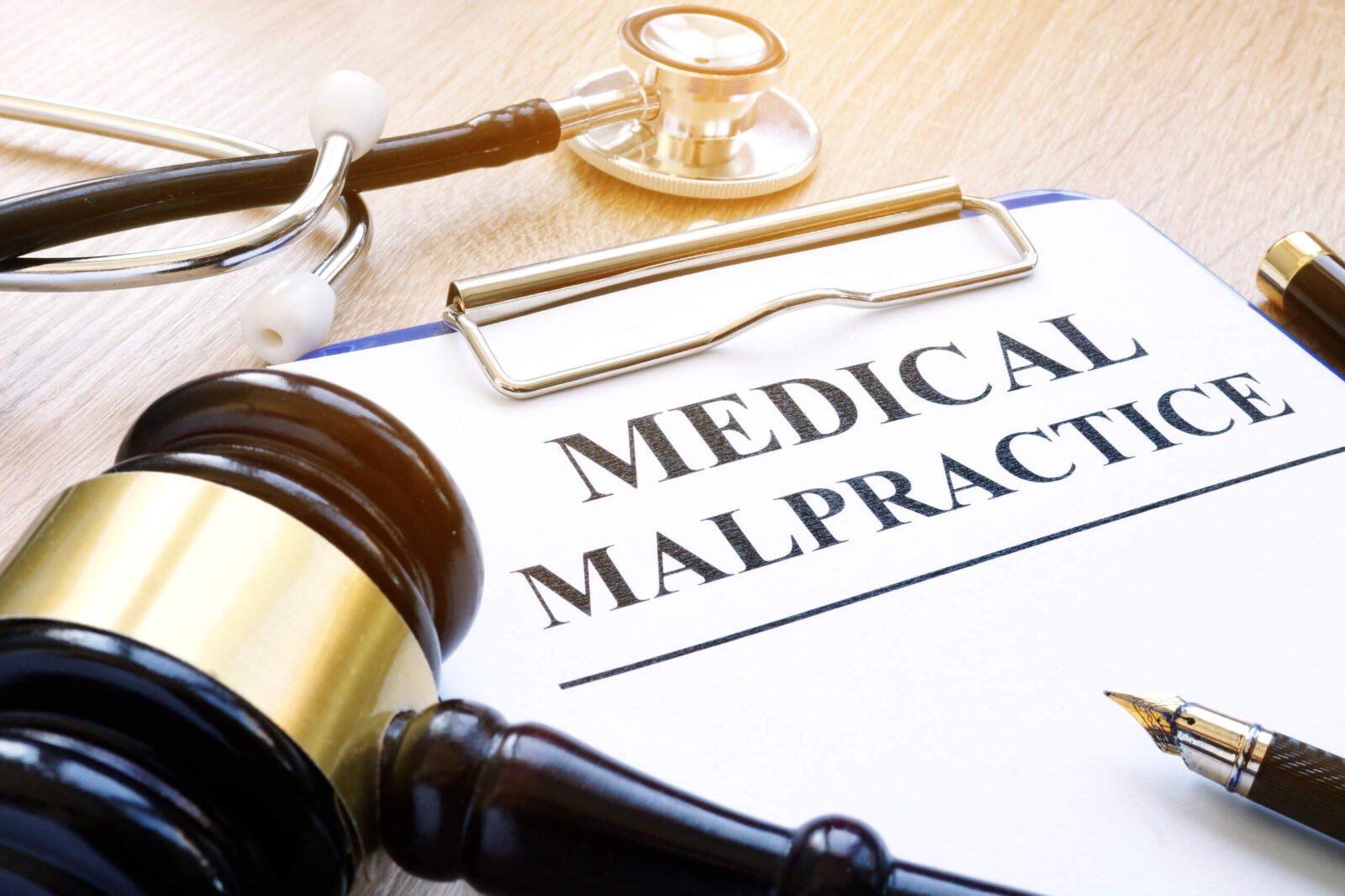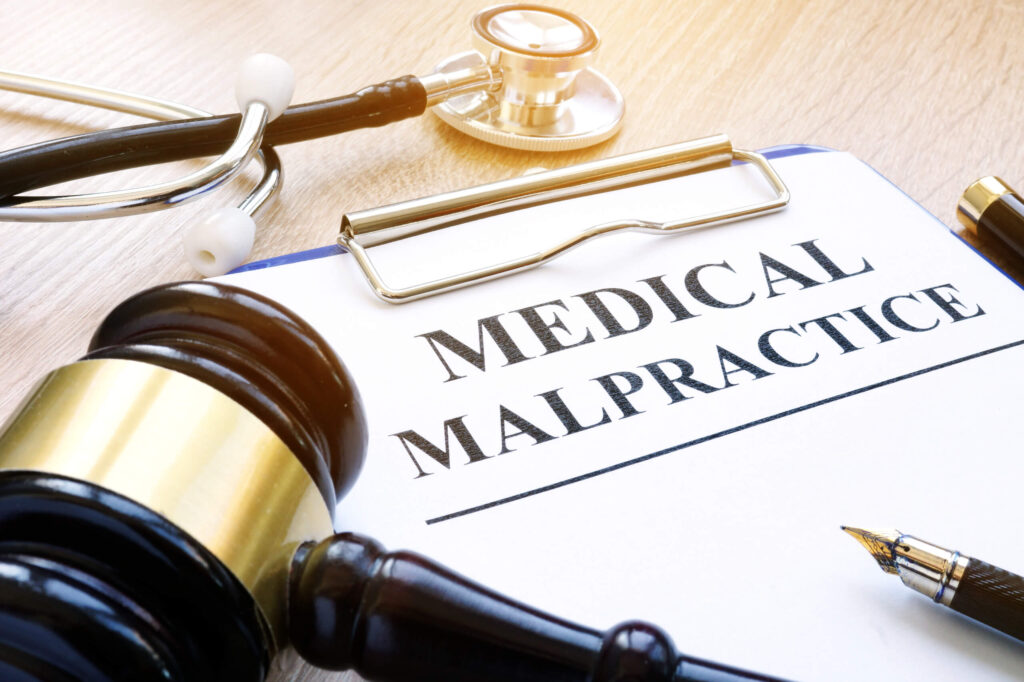Medical malpractice can have devastating consequences, affecting not only the victim but also their family. If you or a loved one has suffered due to medical negligence in Pennsylvania, understanding your legal rights is crucial. Knowing what damages you can claim, how compensation is calculated, and the legal process involved will help you make informed decisions about your case.
This guide provides a comprehensive overview of medical malpractice damages in Pennsylvania, covering economic and non-economic compensation, wrongful death settlements, and how courts determine payouts.
What Qualifies as Medical Malpractice in Pennsylvania?
Definition of Medical Malpractice
Medical malpractice occurs when a healthcare provider, such as a doctor, nurse, or hospital, fails to meet the accepted standard of care, leading to harm to a patient. In legal terms, malpractice happens when a medical professional’s actions or omissions deviate from what a competent provider would do under similar circumstances.
Elements of a Malpractice Case
To prove medical malpractice in Pennsylvania, four elements must be established:
- Doctor-Patient Relationship: The provider had a duty to treat you.
- Negligence: The provider’s actions did not meet the standard of care.
- Causation: The negligence directly caused your injury.
- Damages: The injury resulted in financial, physical, or emotional harm.
Common Types of Medical Malpractice
Medical malpractice takes many forms, including:
- Misdiagnosis or Delayed Diagnosis: Failing to recognize a serious illness in time for treatment.
- Surgical Errors: Performing the wrong procedure or making critical mistakes during surgery.
- Medication Errors: Prescribing the wrong drug or incorrect dosage.
- Birth Injuries: Injuries to a baby or mother due to negligence during delivery.
- Anesthesia Mistakes: Administering too much or too little anesthesia.
- Failure to Obtain Informed Consent: Performing procedures without the patient’s full understanding.
If you believe you were harmed due to medical negligence, understanding the types of damages available can help you determine the next steps.
Types of Medical Malpractice Damages in Pennsylvania
Pennsylvania law allows plaintiffs to recover three types of damages in a malpractice lawsuit: economic damages, non-economic damages, and punitive damages. Each type serves a different purpose and affects the total compensation a victim may receive.
Economic Damages (Financial Losses)
Economic damages cover the direct financial losses resulting from medical malpractice. These damages are tangible and measurable because they involve actual costs incurred by the victim.
Medical Expenses
One of the most significant components of economic damages is medical expenses. This includes:
- Hospital stays
- Surgeries and medical procedures
- Rehabilitation and therapy
- Prescription medications
- Assistive devices such as wheelchairs
If the malpractice injury requires ongoing medical treatment, future medical expenses can also be claimed.
Lost Wages and Reduced Earning Capacity
If a malpractice-related injury prevents a person from working, they can claim compensation for lost wages. This includes income lost due to time off work for medical treatment and recovery.
For victims who suffer permanent disabilities, they may also be eligible for lost earning capacity compensation. This covers the financial impact of being unable to work in the same capacity as before the injury.
Non-Economic Damages (Pain and Suffering)
Non-economic damages compensate for the emotional and psychological impact of malpractice. Unlike economic damages, these losses do not have a fixed dollar value and must be assessed based on the severity of the injury and its effect on the victim’s life.
Pain and Suffering
Victims can seek compensation for physical pain caused by the injury, medical procedures, or long-term health complications. The more severe and long-lasting the pain, the higher the potential compensation.
Emotional Distress
Malpractice victims often suffer anxiety, depression, post-traumatic stress disorder (PTSD), and other psychological effects. Compensation for emotional distress recognizes the mental toll that a malpractice injury can have on a person’s well-being.
Loss of Enjoyment of Life
If an injury prevents someone from engaging in activities they once enjoyed, they may be eligible for loss of enjoyment of life damages. This applies when a victim is unable to participate in hobbies, sports, or family activities due to their injury.
Loss of Companionship (Wrongful Death Cases)
In wrongful death cases, surviving family members may claim loss of companionship damages. This compensates for the loss of emotional support and guidance provided by the deceased.
Punitive Damages (Punishing Gross Negligence)
Punitive damages are not automatically awarded in Pennsylvania malpractice cases. Unlike economic and non-economic damages, which compensate the victim, punitive damages punish the healthcare provider for extreme negligence or intentional harm.
Pennsylvania caps punitive damages at two times the amount of actual damages. This means a victim cannot receive more than twice their total compensatory damages in punitive damages.
For example, if a victim is awarded $500,000 in economic and non-economic damages, the maximum punitive damages would be $1,000,000.
Are There Caps on Medical Malpractice Damages in Pennsylvania?
Unlike some states, Pennsylvania does not impose caps on economic or non-economic damages in medical malpractice cases. This means there is no limit on the amount a victim can recover for medical expenses, lost wages, pain, and suffering.
However, punitive damages are capped at twice the amount of compensatory damages to prevent excessive financial penalties.
Wrongful Death & Malpractice Damages in Pennsylvania
What Is a Wrongful Death Lawsuit?
When a patient dies due to medical malpractice, surviving family members may file a wrongful death lawsuit. This type of claim seeks compensation for both economic and non-economic losses suffered by the deceased and their family.
Compensation in a Wrongful Death Case
Families can recover:
- Funeral and burial expenses
- Medical bills incurred before death
- Lost income and financial support
- Pain and suffering endured by the deceased
- Emotional distress for surviving family members
Wrongful death lawsuits require strong evidence, including expert testimony to prove that negligence directly caused the death.
How Are Malpractice Settlements & Compensation Calculated?
Factors That Affect Compensation
Several factors influence the amount of compensation a victim can receive in a Pennsylvania malpractice case.
- Severity of the Injury: More serious injuries typically result in higher compensation.
- Medical Costs: The total cost of past and future treatments impacts damages.
- Lost Income and Earning Potential: If the victim can no longer work, they may receive substantial compensation.
- Pain and Emotional Suffering: The greater the emotional and physical distress, the higher the settlement.
Each case is unique, and settlements vary widely based on circumstances.
Steps to Filing a Pennsylvania Medical Malpractice Lawsuit
1. Consult a Malpractice Attorney
Medical malpractice cases are complex and require expert legal assistance. A qualified attorney can help gather evidence, secure expert testimony, and navigate the legal system.
2. Obtain Medical Records and Expert Testimony
Pennsylvania law requires malpractice claims to be supported by expert testimony from another medical professional who confirms that negligence occurred.
3. File the Lawsuit Within Two Years
Pennsylvania’s statute of limitations requires malpractice lawsuits to be filed within two years of the injury or discovery of malpractice. Missing this deadline can result in losing the right to sue.
Frequently Asked Questions About Pennsylvania Medical Malpractice Damages
How much compensation can I recover in a Pennsylvania medical malpractice case?
The amount of compensation varies depending on the severity of the injury, medical expenses, lost wages, and emotional distress. Pennsylvania does not have a cap on economic or non-economic damages, so settlements can range from thousands to millions of dollars depending on the case.
Can I sue for emotional distress in a Pennsylvania medical malpractice lawsuit?
Yes, emotional distress is considered a form of non-economic damage in medical malpractice cases. If a malpractice injury causes anxiety, depression, post-traumatic stress disorder (PTSD), or other psychological harm, you may be entitled to compensation.
How do Pennsylvania courts determine malpractice compensation?
Courts consider several factors when calculating malpractice compensation, including the cost of medical treatment, the extent of lost wages, the impact of the injury on quality of life, and the emotional suffering endured. They may also evaluate expert testimony and medical records to determine fair compensation.
Are punitive damages awarded in Pennsylvania malpractice cases?
Punitive damages are rare and are only awarded when the healthcare provider’s negligence was particularly reckless or intentional. Pennsylvania law caps punitive damages at twice the amount of compensatory damages.
What is the statute of limitations for medical malpractice lawsuits in Pennsylvania?
In Pennsylvania, the statute of limitations for medical malpractice lawsuits is two years from the date of injury or from when the injury was discovered. If you fail to file within this time frame, you may lose the right to pursue compensation.
Contact Purchase, George & Murphey, P.C. Today
Understanding Pennsylvania medical malpractice laws is crucial for victims seeking justice. Compensation can cover medical bills, lost wages, and emotional suffering, providing financial security after a malpractice injury.
If you or a loved one has been a victim of medical malpractice, consult an experienced attorney today. A legal expert can help you navigate the complex process and ensure you receive the compensation you deserve. Contact Purchase, George & Murphey, P.C. now for a free consultation.














